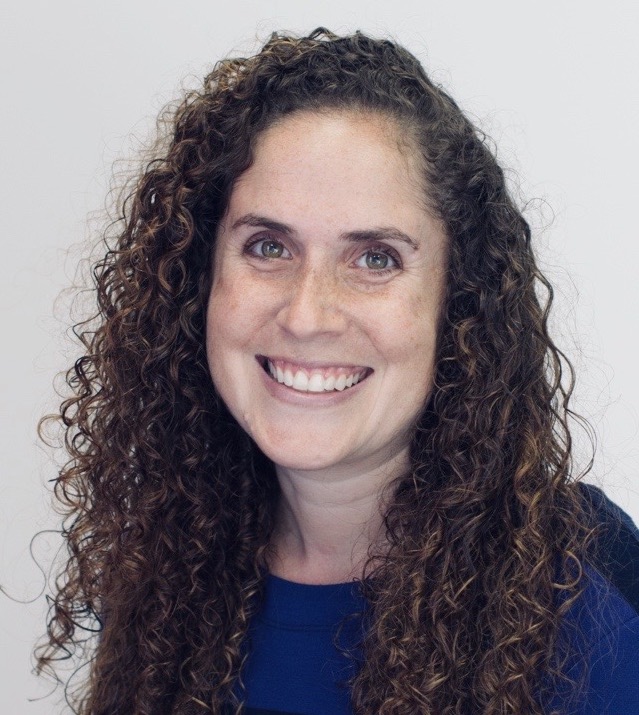DIACC is hosting a series of spotlights showcasing our amazing female DIACC members in the digital identity space, noting the importance of diversity. These spotlights will be regularly socialized through DIACC’s LinkedIn and Twitter channels as well as our monthly member newsletters.
If you’re a DIACC member and would like us to feature your spotlight, contact us today to learn more!

What has your career journey looked like?
My educational background is in Gender Studies, so it was never my aim or expectation to have a career in the tech industry. In my first few jobs, before I had any knowledge of terms like ‘agile’ or ‘scrum’, I was naturally inclined to bring together colleagues from different functions, divide up our work into milestones, and deliver collaboratively as a team. In those early roles, because I was ‘good with computers’, I often found myself with tasks related to process digitization, website updates, and running digital marketing initiatives, in addition to team leadership and project management.
Several years into my career when I was working at ELLE.com, a mentor told me to look up product management, and I had a major lightbulb moment — I discovered there was a name for what I thought I did, professionally. Since that time, I’ve built a rich career in product, both as an individual contributor and as a people manager, and I’ve found my passion in strategic research and bringing new products to life.
When you were 20 years old, what was your dream job and why?
This is such a tough question — at 20, I don’t think I was mature enough to have had a dream job. I had always been inclined to want to help people, and during my teen years I spent most of my free time volunteering with nonprofits. At 20, I’m sure I expected that I would pursue a career in an area that would better the world, with a particular focus on women and the environment.
As a female leader, what has been the most significant barrier in your career?
As I’ve taken on more senior roles, it’s been a challenge to find my leadership style and voice and to develop the resilience needed to continue to lead despite unfounded criticisms or biased feedback. Sometimes it can feel lose-lose for women in leadership, meaning that we are often penalized for demonstrating too many classically ‘male’ behaviours, while also penalized for being too classically ‘female’. There will always be critics, so I like to shift my focus inwards and frequently ask myself if I’m being true to my principles.
How do you balance work and life responsibilities?
Perhaps it’s the New Yorker in me, but I wasn’t naturally good at creating boundaries between work and life. It wasn’t until I moved from NYC to Sydney that I finally understood what balance could look like. I still work more than your typical 9-5, but my mindset is different. I leave my work at work, and I don’t check emails or Slack after I’ve closed my laptop for the day. And most importantly, I now take my annual leave on time and don’t check in with work while I’m away. I’ve finally learned how important it is to ‘switch off’ and leave space in my mind and my day for things that bring me personal fulfillment.
How can more women be encouraged to pursue careers in the digital ID/tech space?
Women working in digital ID/tech need to be more visible, inside our orgs and externally in the industry. I think this is the #1 way we can encourage more women to pursue the same path. We have a responsibility to the generations coming up to create a presence, which we can do by asking to be part of hiring committees, volunteering to be mentors, and submitting to be speakers at industry events.
What are some strategies you have learned to help women achieve a more prominent role in their organizations?
Early in my career I learned that the best way to make myself known to decision-makers was to put my hand up and ask for the work I wanted to be doing. This created opportunities for learning, development, and recognition. As I began to grow my reputation, when it came time to assign new projects or grant promotions, I was already visible and ‘proven’ to the management.
What will be the biggest challenge for the generation of women behind you?
I think we’re only just starting to see the widespread negative effects of product decisions made by my generation. Things like always-on culture, social media, endless scroll, filters, and nudges may feel like an essential part of digital life, but we’re already seeing the negative effects. As we get more distance from these so-called popular advances, more examples of ethically questionable decisions and results will emerge. Unfortunately, it will be the next generation’s responsibility to ‘clean up’ 20 years of tech-driven behaviors and culture, and I see this as a great challenge for the generation coming up now.
What advice would you give to young women entering the field?
Find a mentor. Find a work friend. Find someone who champions you. Being a woman in tech can be difficult, but it can also be fun, engaging, and inspiring. It’s worth the challenge.
Merissa Silk is the Staff Product Manager at Onfido
Follow Merissa on LinkedIn.